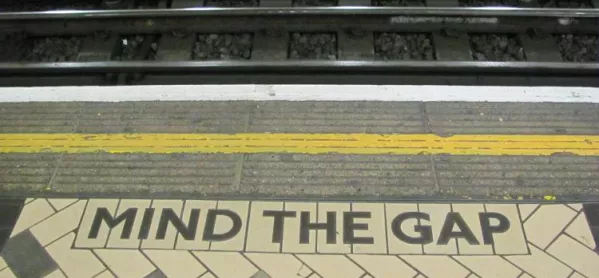- Home
- Setting can have “profound negative impact” on social mobility, government commission says
Setting can have “profound negative impact” on social mobility, government commission says

Putting children into sets can have a “profound negative impact” on social mobility and should be discouraged by the government, a new report claims.
The research by the government’s Social Mobility Commission, published today, cites evidence that children from low income backgrounds were more likely to be placed in low ability groups, which then fall behind as the gap with the top sets widens.
The commission is chaired by former Labour health secretary Alan Milburn, with former Conservative education secretary Baroness Gillian Shephard as deputy.
The report, Ethnicity, Gender and Social Mobility, was written by researchers from education think-tank LKMco, and Education Datalab.
It says: “Early setting, (for example at primary school) is shown to reduce progress by pupils who begin primary school in lower ability groups’ at all key stages. It also negatively impacts on children and their parents’ aspirations, partly by reducing the positive peer effects.
“Setting can therefore have a profound negative impact on pupils’ future social mobility.”
The authors also question the reliability of teachers’ judgements of pupils’ ability at Key Stage One, warning that “perceived and actual discriminatory practices and attitudes” could influence which sets children were put in.
It recommends: “Schools should avoid setting, particularly at primary level, and government should discourage schools from doing so.”
The Department for Education said that the use of setting was a matter for schools and headteachers.
The report also reiterates concerns about the performance of white, working class children, finding this group had the biggest gap between the performance of children entitled to free school meals and their peers.
“Disadvantaged ‘white British’ and ‘white other’ pupils are the lowest performing groups at primary and secondary school. During secondary school, disadvantaged white British pupils make slower progress and therefore fall further behind,” it says.
It also finds that black children are the group most likely to fail GCSE maths, be excluded, and fail to get a good degree at university, despite starting primary school with levels of literacy and numeracy largely in line with the national average.
The authors point to studies suggesting some of this may be due to teachers’ “conscious or unconscious biases and their assumptions about behaviour and work ethic”.
However, they also point to recent improvements in the proportion of younger black pupils meeting national thresholds, which could feed through into upper key stages and university as they move through education.
‘Broken mobility promise’
The report also warned that the disadvantage experienced by some ethnic groups could become “self-perpetuating” when their pupils are clustered in a small number of schools in an area, rather than spread equally across all local schools.
It says this appeared to be largely driven by “peer effects”, which sees pupils surrounded by high achieving pupils make more progress than those surrounded by lower achieving peers.
The report also highlights a “broken mobility promise” for Asian Muslims, particularly women, whose educational performance has improved faster than other groups, but is not yet reflected in earnings, or holding managerial or professional roles.
It also found that boys and girls perform similarly in maths and Stem subjects, while boys perform better than girls in Key Stage Two maths - a trend it said could make girls less likely to take Stem subjects at A-level, which could hinder their social mobility.
A Department for Education spokesperson said: “Everyone should have the opportunity to go as far as their talents will take them, no matter what their background. We are working to make more good school places available, in more parts of the country, so that every child can have access to an education that will unlock their potential.
“Through our Higher Education Bill, we are ensuring all institutions go further and faster to promote social mobility and our latest 2016 figures show that the application rate for 18 year olds from disadvantaged backgrounds is at a record level.
“We also know that careers advice can be essential in helping every young person choose the best direction for them, which is why we are investing £90 million over this Parliament in good quality careers provision across England.”
Want to keep up with the latest education news and opinion? Follow TES on Twitter and like TES on Facebook
Keep reading for just £1 per month
You've reached your limit of free articles this month. Subscribe for £1 per month for three months and get:
- Unlimited access to all Tes magazine content
- Exclusive subscriber-only stories
- Award-winning email newsletters



